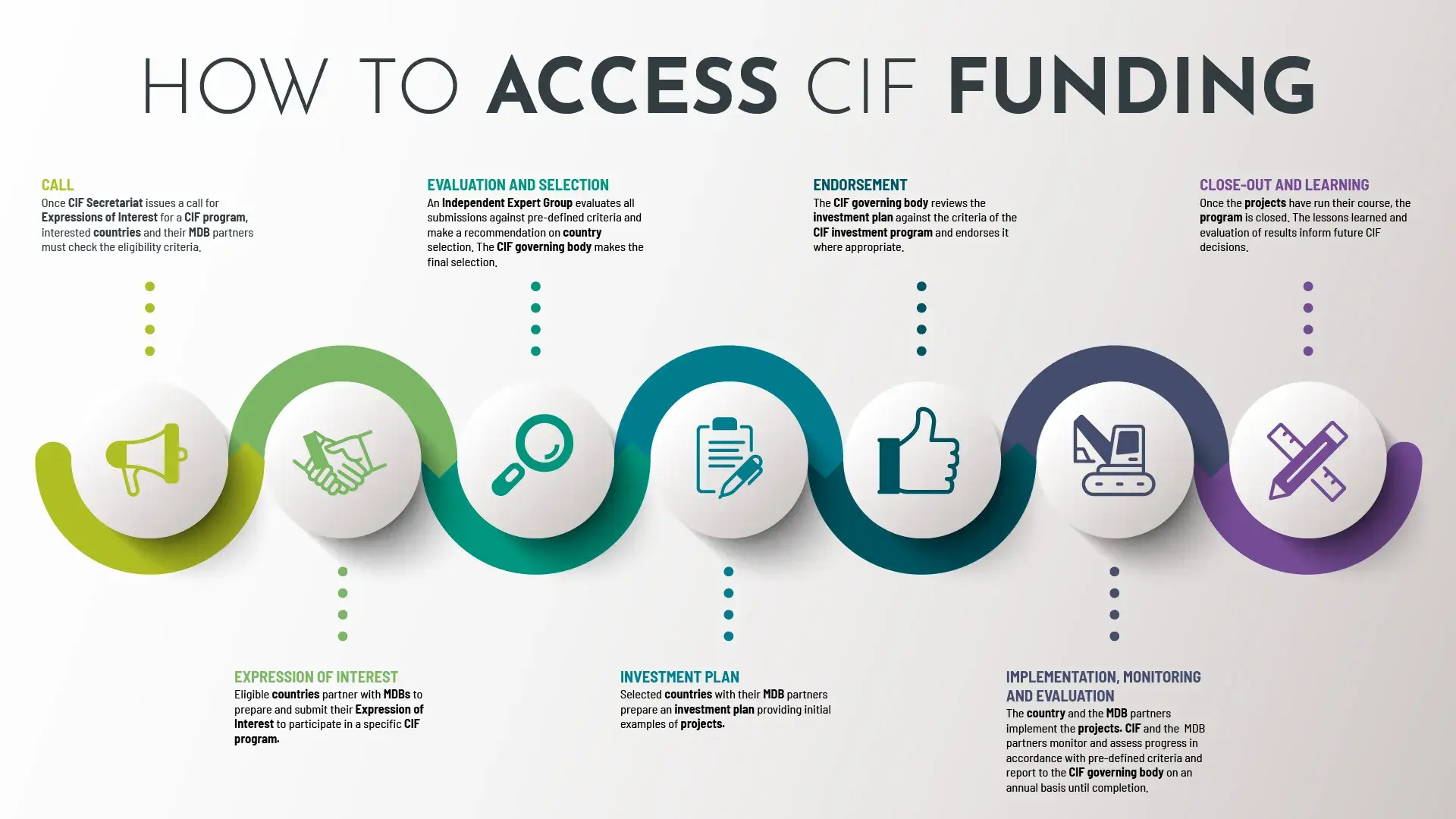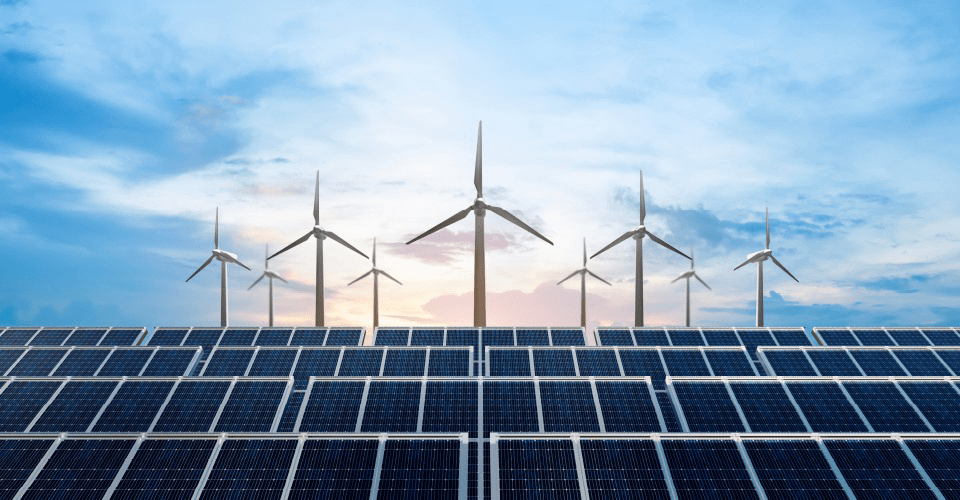The Climate Investment Funds (CIF) is a leading multilateral climate finance partnership that channels concessional finance through six multilateral development banks (MDBs) for both upstream advisory and downstream investment activities to support climate action.
The World Bank Group, including the International Finance Corporation, the African Development Bank, the Asian Development Bank, the European Development Bank, and the Inter-American Development Bank, are the implementing partners of CIF’s investments.
CIF comprises two funds: the Clean Technology Fund (CTF) and the Strategic Climate Fund (SCF).

Clean Technology Fund
CTF provides large-scale financial resources for investing in clean technology projects in low- and middle-income countries. They contribute to the demonstration, deployment, and transfer of low-carbon technologies with significant potential for reducing long-term greenhouse gas emissions.
The fund uses a blend of financial instruments, including grants, contingent grants, concessional loans, equity, and guarantees to make investing in low-carbon technologies more attractive to both public- and private-sector investors in low- and middle-income countries.


Accessing CTF Funding
CIF-CTF funding is only accessible through the MDBs (the World Bank Group, the Inter-American Development Bank, the African Development Bank, the European Bank for Reconstruction and Development, and the Asian Development Bank), which serve as implementing partners.
Strategic Climate Fund
SCF provides financing for piloting innovative approaches or scaling up activities aimed at specific climate change challenges or sectoral responses. It is designed to address the following areas:
- Provide experience and lessons through learning by doing;
- Channel new and additional financing for climate change mitigation and adaptation;
- Provide incentives for scaled-up and transformational action in the context of poverty reduction; as well as
- Provide incentives to maintain, restore, and enhance carbon-rich natural ecosystems, and maximize the co-benefits of sustainable development.
SCF serves as an overarching framework that provides funding through the following CIF programs:
The Forest Investment Program provides direct investments to address the drivers of deforestation and forest degradation. It also offers grants and low-interest loans to help governments, communities, and businesses work together to define sustainable solutions for people and economies relying on forests, while maintaining important ecosystem services.
The Pilot Program for Climate Resilience provides funding support for some of the most vulnerable low- and middle-income countries and regions in building adaptation and resilience to climate change.
The Scaling Up Renewable Energy in Low Income Countries program supports the scaled-up deployment of renewable energy solutions, such as solar and geothermal, to increase energy access. It is one of the biggest global funders of mini-grids — a game changer for isolated, off-grid communities.
The Renewable Energy Integration program provides funding that helps address system-wide barriers to the integration of higher shares of intermittent renewable energy generation into the grid and takes advantage of the opportunities emerging as part of the clean energy transition.
The Nature, People and Climate program provides funding to help governments, industries, and communities to harness the potential of land resources and ecosystems in climate action, and reduce barriers to sustainability in key areas, such as agriculture and food systems, forests, and other land-based ecosystems.


Accessing SCF Funding
CIF-SCF funding is only accessible through the MDBs (the World Bank Group, the Inter-American Development Bank, the African Development Bank, the European Bank for Reconstruction and Development, and the Asian Development Bank), which serve as implementing partners.
CIF’s Funding Approaches
Fast-growing developing countries need trillions of dollars of additional investment to achieve low-carbon, climate-resilient economies. The private sector is critical to mobilizing the financing volumes needed to help developing countries move toward low-carbon economies.
By providing highly competitive financing, CIF reduces risks for investors, thereby lowering barriers to piloting new clean technologies and scaling up proven solutions.
CIF also helps the private sector to enter emerging markets, where it may otherwise be unwilling or unable to invest.
Essentially, CIF’s combination of technical advisory and financial resources (including equity, grants, loans, guarantees, and local currency hedging) helps reduce investment barriers, test new business models, and de-risk new low-carbon, climate-smart markets, thus enabling the private sector to participate in clean-energy economies at a faster rate and on a greater scale.
Approximately 30 percent of CIF’s funding is invested in private-sector operations. These funds are deployed via the MDBs to private-sector sponsors and companies through both national and regional investment plans, as well as dedicated funding mechanisms, such as CIF’s Dedicated Private Sector Programs (DPSP).
